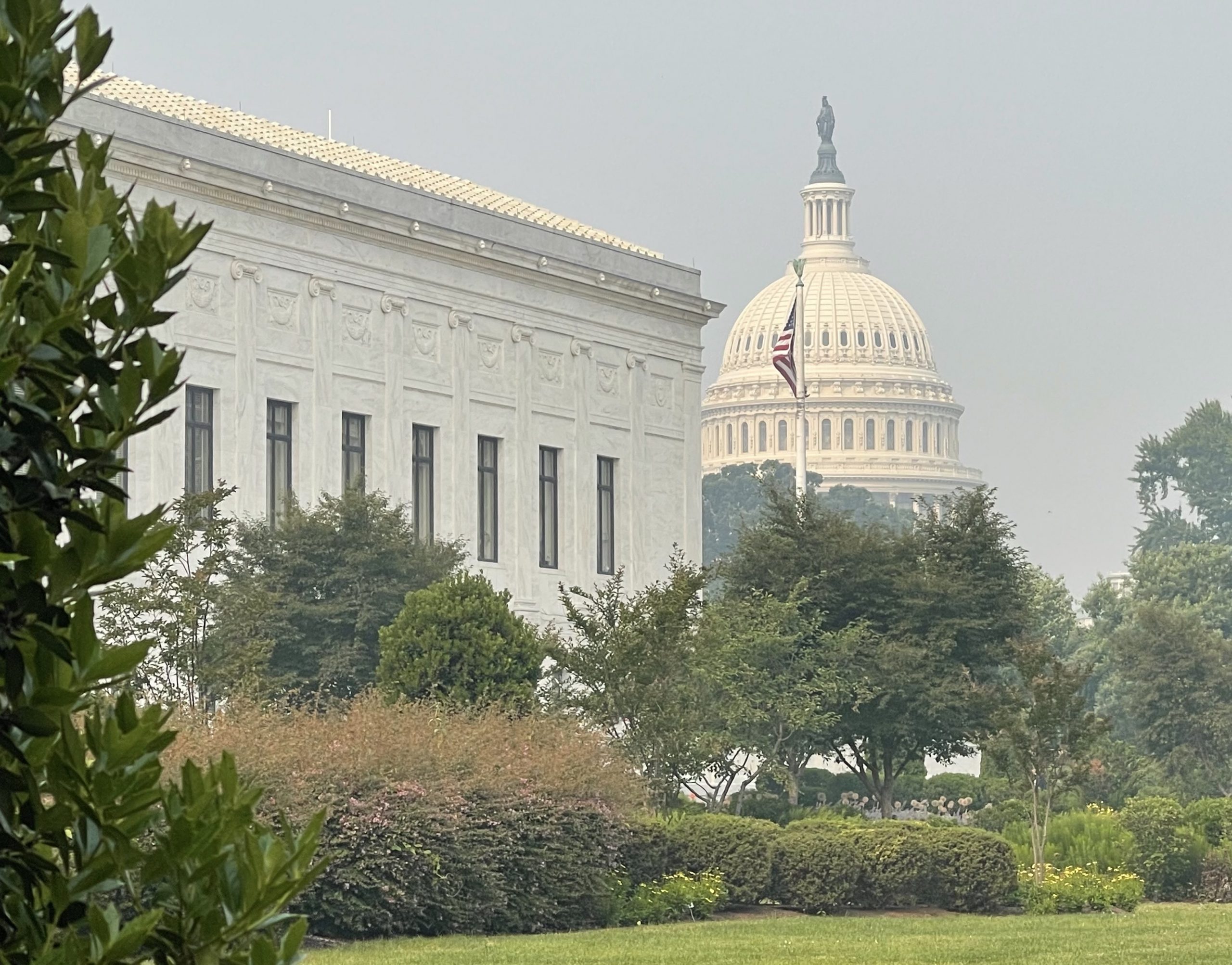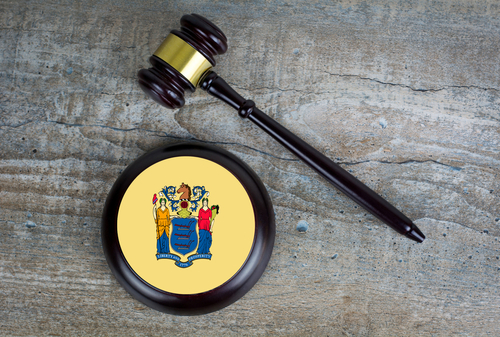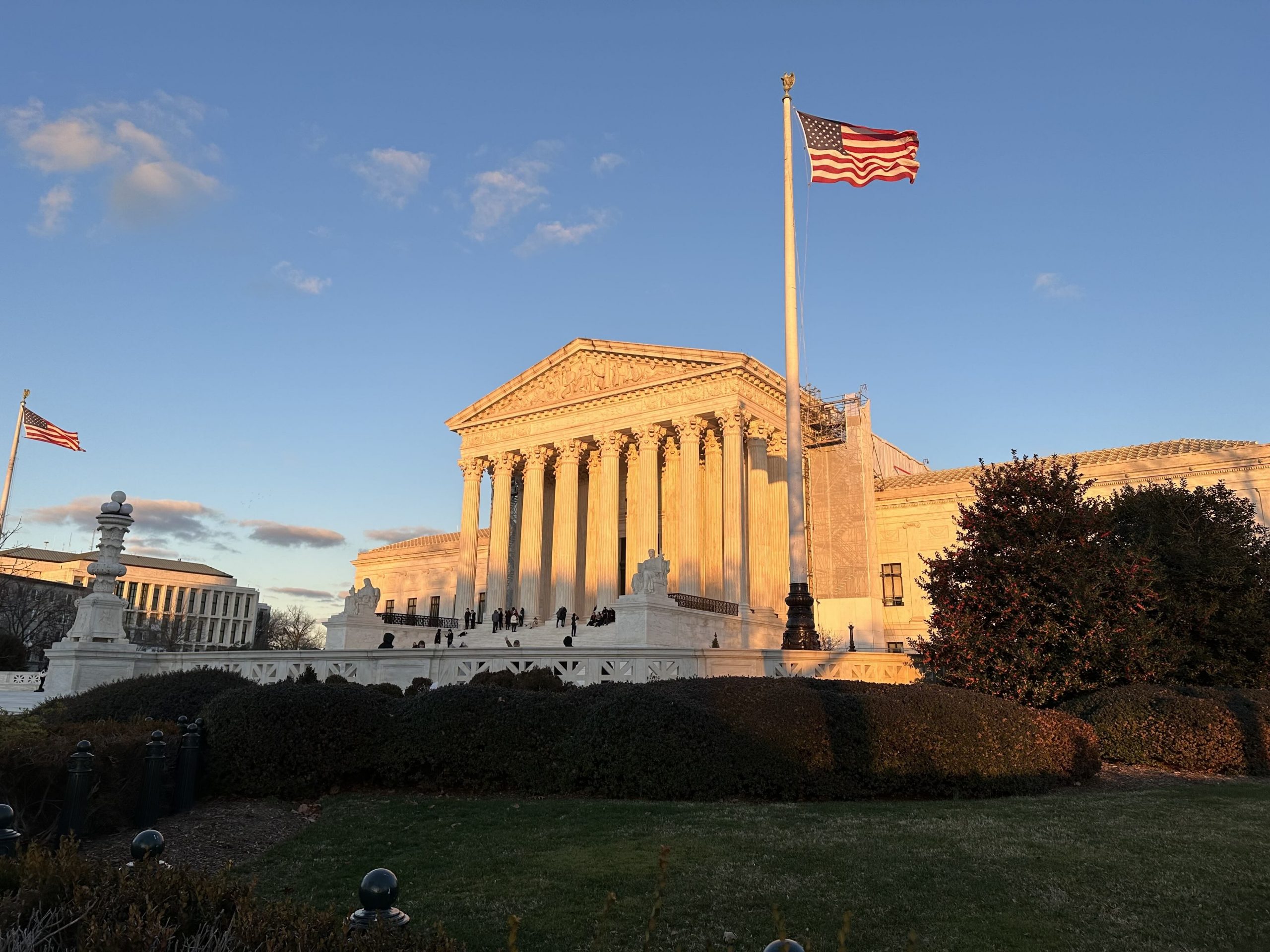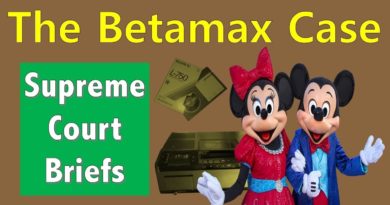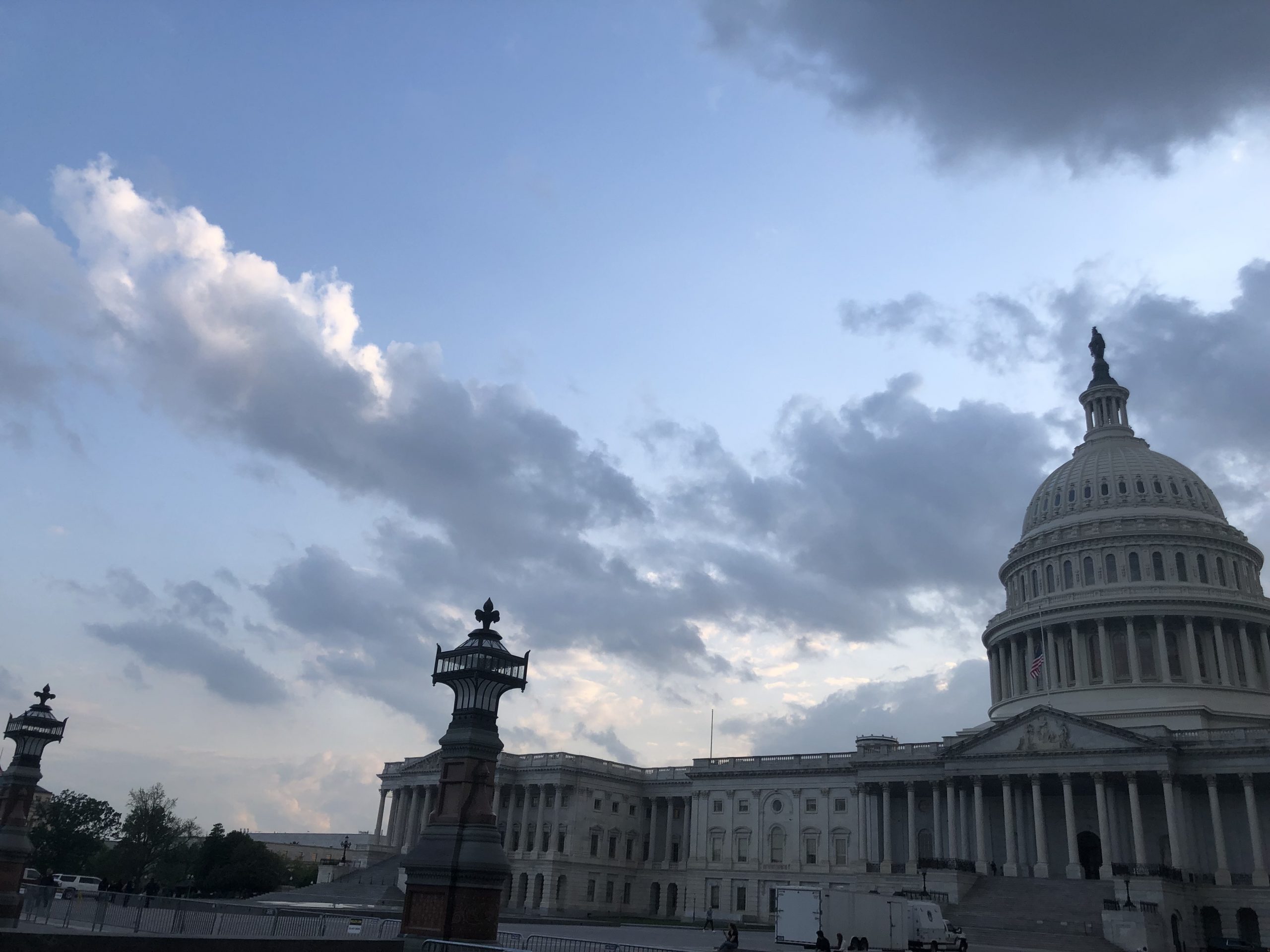A courtroom prop, a song, and another surprise
A VIEW FROM THE COURT
on Jun 8, 2023
at 2:48 pm
Smoke from Canadian wildfires outside the court on Thursday. (Mark Walsh)
Several police officers outside the Supreme Court building have donned masks as haze from Canadian wildfires has become more noticeable in Washington this morning.
Inside, the courtroom is full, with groups of lawyers from three organizations being sworn into the bar: the Christian Legal Society, the University of Kansas School of Law, and the American Bar Association Senior Lawyer Association.
I am close to the Kansas group, and I ask them what they think of efforts to rename Brown v. Board of Education, the landmark civil rights case out of that state. As I wrote earlier this week, the descendants of plaintiffs in a companion case from South Carolina believe that Brown should be renamed Briggs v. Elliott for historical correctness, but the issue is a bit complex and the court likely had several reasons for putting the Kansas case first.
Justice Ketanji Brown Jackson is first up today with a straightforward summary of Health and Hospital Corporation of Marion County v. Talevski, finding that the Federal Nursing Home Reform Act unambiguously creates enforceable rights under Section 1983.
Justice Elena Kagan is next with the unanimous opinion in Jack Daniel’s Properties v. VIP Products. Anyone who paid attention to the lively argument in that case in March will recall that Kagan was quite skeptical of the claims, as well as the humor, alleged by the maker of parody dog toys.
As she begins, “This case is about squeaky dog toys and whisky,” I am looking down at my notepad when I hear a wave of laughter in the courtroom. I look up to see Kagan holding the Bad Spaniel’s toy in her right hand, waving it. I can’t quite tell whether she gives it a squeeze for a squeak. She does not have, for comparison, a bottle of Jack Daniel’s in her left hand, though as she urges in her written opinion, “Recall what the bottle looks like (or better yet, retrieve a bottle from wherever you keep liquor; it’s probably there).”
Kagan discusses how VIP has used the “cribbed Jack Daniel’s” features for its toy, and then she gives a basic explanation of the “Rogers test” — from the U.S. Court of Appeals for the 2nd Circuit’s 1989 decision in Rogers v. Grimaldi — and how some challenged trademarks do not seek to designate the work’s source and thus are found to not be violating another mark.
And she has a couple of examples, drawn from the briefs. One involves the toymaker Mattel’s suit over the song “Barbie Girl.”
“You may have heard it: ‘I’m a Barbie Girl,’” Kagan says, singing the line. “‘Life in plastic, it’s fantastic.’”
The audience erupts again, though I can’t quite see whether the members of the ABA Senior Lawyer Division are enjoying the impromptu performance.
Kagan moves on to “The Hangover: Part II.” A court applied the Rogers test to reject Louis Vuitton’s challenge to a character in the movie describing his luggage as “Lewis Vuitton.”
Today’s opinion, Kagan says, is narrow. The court is not deciding whether the Rogers test is ever appropriate. Instead, Rogers does not apply when the trademark is being used as a mark. And she points out that VIP Products has further issues it can press as the case is remanded for further proceedings.
Justice Sonia Sotomayor is up next with the announcement in Dubin v. United States, which limits the scope of identity theft under a federal criminal statute.
“I won’t be as entertaining,” Sotomayor says before delivering a straightforward summary of the case.
Finally, the chief justice, who has had his reading glasses on as the other opinions were read, announces that he has the opinion in Allen v. Milligan, a major case about Section 2 of the Voting Rights Act.
Roberts does not give away the surprising outcome in the case right away. He goes on for almost 10 minutes explaining the background of the case, a challenge to Alabama’s congressional redistricting plan.
“Now, we both agree and disagree with Alabama,” he says about the state’s appeal, which includes broader arguments seeking to limit the scope of Section 2. But he gets around to explaining that the court is rejecting Alabama’s effort to remake Section 2 jurisprudence.
“We will not adopt the change to existing law Alabama seeks,” the chief says.
He explains the somewhat complicated lineup, which includes dissents from Justice Clarence Thomas (joined by Justice Neil Gorsuch and in part by Justices Amy Coney Barrett and Samuel Alito) and Alito (joined by Gorsuch).
There are no dissents announced from the bench. When the justices leave, I can’t quite see whether Kagan has taken her prop in hand or left it for some person, or maybe a dog, to retrieve later.
Marshal Gail Curley announces that court is in recess until next Thursday.

